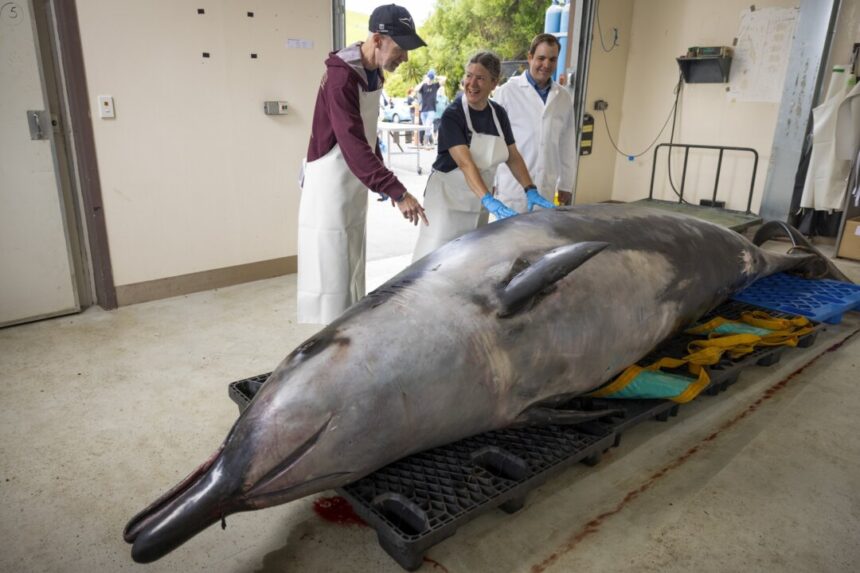In Wellington, New Zealand, a group of scientists and cultural experts gathered around a rare spade-toothed whale, hoping to uncover the mysteries surrounding this elusive species. With only seven of its kind ever spotted, very little is known about these whales. The senior marine science adviser for New Zealand’s conservation agency, Anton van Helden, expressed his excitement at the opportunity to study the whale up close.
Despite studying beaked whales for 35 years, van Helden had never before participated in a dissection of a spade-toothed whale. This particular whale, found dead on a New Zealand beach in July, presented a unique opportunity for researchers to learn more about this enigmatic species.
Many questions remain unanswered about spade-toothed whales, such as their habitat, feeding habits, and cause of death. Researchers hope to gain insights into these questions as they study the 16-foot-long male whale in the coming week.
One of the most exciting prospects for researchers is the possibility of discovering new parasites or understanding how the whale produces sound and processes food. The study of this whale could reveal valuable information about its behavior and biology.
New Zealand has a history of whale strandings, with the spade-toothed whale being a rare find in the region. Previous discoveries of spade-toothed whale bones have hinted at the existence of this species, but it wasn’t until 2010 that two whole whales washed up on a beach, confirming their presence.
Throughout the dissection process, the researchers will work closely with Māori, the Indigenous people of New Zealand, to ensure that the whale is treated with respect and reverence. Traditional practices, such as saying a prayer over the creature, will be observed to honor the whale as a precious gift from the ocean deity.
The collaboration between scientists and the local iwi will provide a comprehensive understanding of the spade-toothed whale and its significance in the marine ecosystem. By preserving parts of the whale for display in a museum and using 3D printing technology to replicate its jawbone and teeth, researchers aim to create a lasting record of this unique species.
As researchers delve into the mysteries of the spade-toothed whale, they hope to uncover valuable insights that could benefit not only marine science but also our understanding of the natural world and its interconnectedness.
By Charlotte Graham-McLay
Please rewrite this sentence.
Source link





